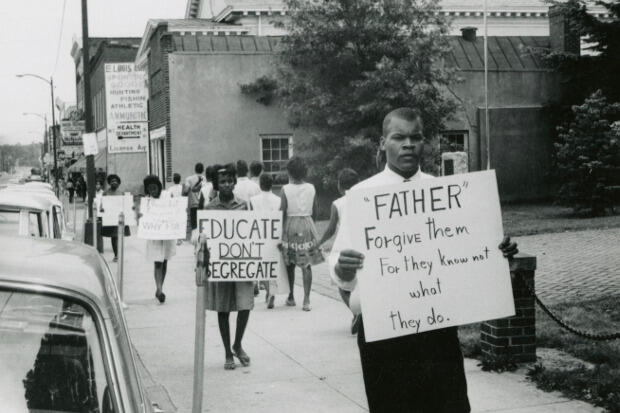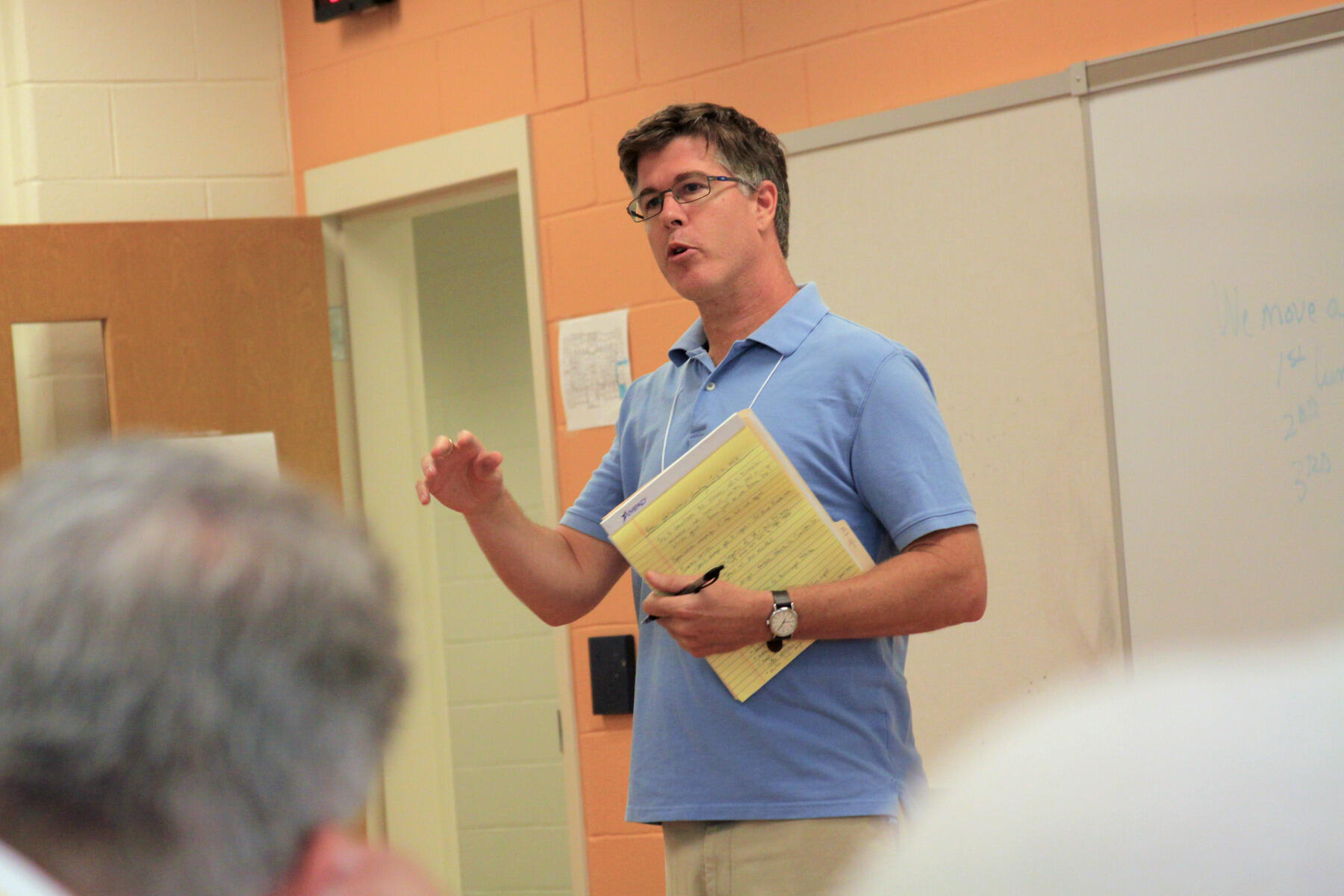
Aug. 10, 2016
School teachers from across U.S. to visit VCU to explore history of school desegregation in Virginia
Share this story
As part of a National Endowment for the Humanities grant, 72 social studies teachers from across the United States will visit Virginia Commonwealth University next summer to gain an in-depth understanding of Virginia’s experience with school desegregation.
The one-year, $175,000 grant — awarded to project co-directors Brian Daugherity, Ph.D., assistant professor in the Department of History in the College of Humanities and Sciences, and Yonghee Suh, Ph.D., associate professor of social studies and history education at Old Dominion University — will explore the history of school desegregation in Virginia, as well as the ramifications and legacies of that process for the state and the rest of the country.
In reality, the struggle for equality was taking place all over the nation, and Virginia’s role was particularly important.
“One of the misperceptions of the civil rights era is that it occurred primarily in the Deep South — states like Alabama, Mississippi and others,” Daugherity said. “In reality, the struggle for equality was taking place all over the nation, and Virginia’s role was particularly important.”
Lawyers for Virginia’s leading civil rights group, the NAACP, were involved in both the U.S. Supreme Court’s Brown v. Board of Education decision in 1954 that found state laws establishing separate public schools for black and white students to be unconstitutional, as well as a series of subsequent decisions that forced southern states to comply with the Brown ruling.
“Virginia’s role in the civil rights era, particularly with regards to school desegregation, was tremendous,” Daugherity said. “The goal of this project is to bring school teachers from around the country — and from Virginia — to VCU to help them better understand the history [of school desegregation in Virginia] so they can take that knowledge back and develop even more effective instructional activities for their students.”
The grant, “The Long Road from Brown: School Desegregation in Virginia,” is part of the NEH’s Landmarks of American History and Culture Workshops for School Teachers program, which provides K-12 teachers with workshops that use historic sites to address central themes and issues in American history, government, literature, art, music and related subjects in the humanities. The grant was announced Tuesday and is one of 20 such projects across the country.
“Our workshops cover relatively unknown stories of the desegregation process in Virginia after Brown v. Board of Education and its legacies on the nation as a whole,” Suh said. “These are especially unknown stories to students in K-12 schools since Brown is often presented as one of the most significant democratic achievements in U.S. history curriculum and state standards. I hope teachers learn from the workshops that there were strong resistances and fights for school desegregation and consequences of this desegregation process directly impact our schools and society.”

During next summer’s workshops, the Long Road from Brown participants will visit a number of sites across Virginia that played pivotal roles in the civil rights era and in school desegregation. They will visit Prince Edward County, which shuttered its public schools from 1959 to 1964 to avoid integration, as well as New Kent County, out of which arose the Supreme Court’s 1968 decision in Green v. School Board of New Kent County that hastened the pace of school desegregation across the country.
The teachers will also visit a number of other historic sites and archives around Virginia, and will hear guest lecturers from civil rights scholars from Longwood University, Norfolk State University, the College of William & Mary,Virginia Tech, and elsewhere. VCU Libraries’ Special Collections & Archives, the Library of Virginia, and Virginia State University in Petersburg are also partners on the project.
Daugherity and Suh led workshops for teachers on Virginia’s experience with school desegregation in 2015. Sheri Gilreath-Watts, a high school English teacher from Grand Rapids, Michigan, was one of around 70 teachers who took part that summer.
“This has reminded me that I can’t take my education for granted and I will be passing that on to the kids so they don’t take their education for granted as well,” she said, having just listened to Jody L. Allen, Ph.D., visiting assistant professor of history at William & Mary, give an in-depth lecture on Green v. School Board of New Kent County at New Kent High School.
“A few former participants from other states, such as Colorado, Utah and Washington among others, shared that they had never known Virginia's resistance against Brown and that this historical knowledge offers a new perspective to look at Brown and the narrative of the civil rights movement,” Suh said. “They also appreciated the opportunities this new perspective allowed them to re-think and re-learn stories about school desegregation in their own states, which is one of the powerful and important outcomes of our workshops.”
Daugherity coedited a collection of essays, “With All Deliberate Speed: Implementing Brown v. Board of Education” (University of Arkansas Press, 2008), that examined the implementation of Brown v. Board of Education in various states around the nation. He is also the author of the newly released book, “Keep On Keeping On: The NAACP and the Implementation of Brown v. Board of Education in Virginia” (The University of Virginia Press, 2016). Additionally, he is co-producing a 60-minute documentary on the U.S. Supreme Court decision Green v. New Kent County.
Subscribe to VCU News
Subscribe to VCU News at newsletter.vcu.edu and receive a selection of stories, videos, photos, news clips and event listings in your inbox.










